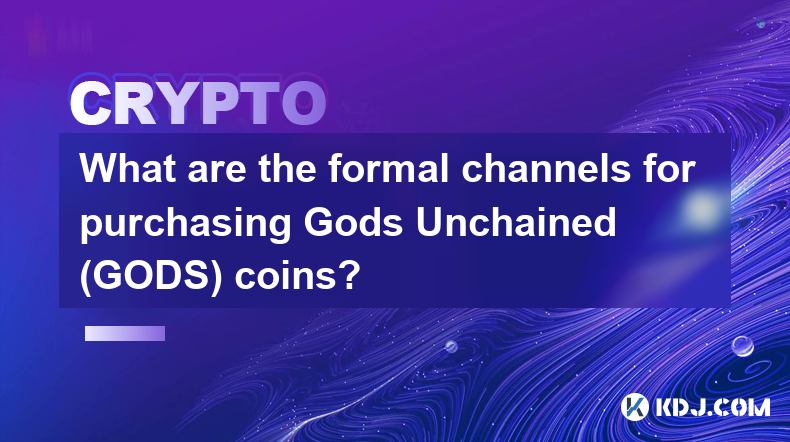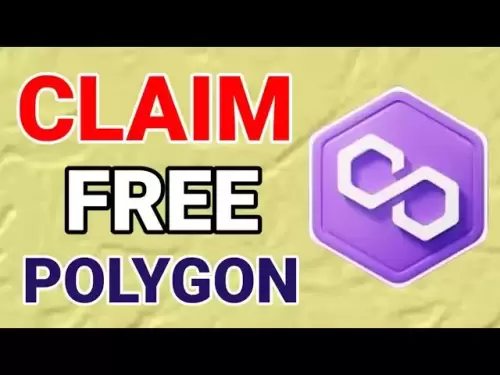-
 Bitcoin
Bitcoin $106,754.6083
1.33% -
 Ethereum
Ethereum $2,625.8249
3.80% -
 Tether USDt
Tether USDt $1.0001
-0.03% -
 XRP
XRP $2.1891
1.67% -
 BNB
BNB $654.5220
0.66% -
 Solana
Solana $156.9428
7.28% -
 USDC
USDC $0.9998
0.00% -
 Dogecoin
Dogecoin $0.1780
1.14% -
 TRON
TRON $0.2706
-0.16% -
 Cardano
Cardano $0.6470
2.77% -
 Hyperliquid
Hyperliquid $44.6467
10.24% -
 Sui
Sui $3.1128
3.86% -
 Bitcoin Cash
Bitcoin Cash $455.7646
3.00% -
 Chainlink
Chainlink $13.6858
4.08% -
 UNUS SED LEO
UNUS SED LEO $9.2682
0.21% -
 Avalanche
Avalanche $19.7433
3.79% -
 Stellar
Stellar $0.2616
1.64% -
 Toncoin
Toncoin $3.0222
2.19% -
 Shiba Inu
Shiba Inu $0.0...01220
1.49% -
 Hedera
Hedera $0.1580
2.75% -
 Litecoin
Litecoin $87.4964
2.29% -
 Polkadot
Polkadot $3.8958
3.05% -
 Ethena USDe
Ethena USDe $1.0000
-0.04% -
 Monero
Monero $317.2263
0.26% -
 Bitget Token
Bitget Token $4.5985
1.68% -
 Dai
Dai $0.9999
0.00% -
 Pepe
Pepe $0.0...01140
2.44% -
 Uniswap
Uniswap $7.6065
5.29% -
 Pi
Pi $0.6042
-2.00% -
 Aave
Aave $289.6343
6.02%
What are the formal channels for purchasing Gods Unchained (GODS) coins?
Decentralized exchanges, like Uniswap and PancakeSwap, offer lower trading fees for buying GODS coins compared to centralized exchanges, making them a cost-effective option for investors.
Dec 23, 2024 at 07:56 pm

Key Points
- Gods Unchained (GODS) is a popular cryptocurrency project focused on the development of digital trading card games.
- There are several formal channels through which investors and traders can purchase GODS coins.
- Each channel has its own unique set of features, fees, and advantages.
- Understanding the available channels enables investors to make informed decisions based on their specific needs and preferences.
- The following article provides a comprehensive overview of the formal channels for purchasing GODS coins.
Formal Channels for Purchasing GODS Coins
- Centralized Exchanges (CEXs)
Centralized exchanges are online platforms that bring together buyers and sellers of cryptocurrencies. They act as intermediaries, facilitating transactions between users and providing a secure environment for trading.
- Binance: Binance is the world's largest cryptocurrency exchange by trading volume, offering a wide range of cryptocurrencies, including GODS. Binance offers competitive trading fees and a user-friendly interface.
- Crypto.com: Crypto.com is another popular CEX that offers a diverse selection of cryptocurrencies. It provides competitive trading fees and a comprehensive mobile app for convenient trading on the go.
- Coinbase: Coinbase is one of the most trusted CEXs, known for its ease of use and high security standards. While Coinbase's trading fees are slightly higher than other CEXs, it provides a reliable and secure platform for beginners and experienced traders alike.
- Decentralized Exchanges (DEXs)
Decentralized exchanges operate differently from CEXs as they do not hold user funds or facilitate transactions directly. Instead, DEXs enable users to trade cryptocurrencies directly with each other through smart contracts.
- Uniswap: Uniswap is a popular DEX that follows the automated market maker (AMM) model. It allows users to trade GODS coins directly from their wallets, eliminating the need for a centralized intermediary.
- PancakeSwap: PancakeSwap is another AMM-based DEX that offers a wide selection of cryptocurrencies, including GODS. It is known for its low trading fees and fast transaction speeds.
- Over-the-Counter (OTC) Brokers
OTC brokers are private platforms that facilitate large-volume cryptocurrency trades between institutional and individual investors. They provide tailored services, including price negotiation and settlement execution.
- Genesis: Genesis is a leading OTC broker known for its experience and expertise in the cryptocurrency market. It offers competitive trading fees and access to a vast network of buyers and sellers.
- BlockFi: BlockFi is an innovative OTC broker that provides a range of financial services, including cryptocurrency trading, loans, and interest-bearing accounts. It offers customized solutions for individual and institutional clients.
- Peer-to-Peer (P2P) Marketplaces
P2P marketplaces allow users to trade cryptocurrencies directly with each other without the use of intermediaries. They provide a decentralized platform for buying and selling GODS coins privately.
- LocalBitcoins: LocalBitcoins is an established P2P marketplace that facilitates Bitcoin (BTC) trades. It has expanded its offerings to include GODS coins, providing users with a trusted platform for anonymous trading.
- Binance P2P: Binance operates its own P2P marketplace, allowing users to trade GODS coins directly with other users on the Binance platform. It offers a wide range of payment options and ensures a secure and convenient trading experience.
- Cryptocurrency Wallets
Some cryptocurrency wallets have integrated features that allow users to purchase GODS coins directly from the wallet interface. These wallets provide a convenient and secure way to manage and trade GODS coins in one place.
- Metamask: Metamask is a popular web browser-based wallet that supports GODS coins. It allows users to connect to DEXs and CEXs easily, enabling seamless trading and management of GODS coins.
- Trust Wallet: Trust Wallet is a mobile wallet designed for storing and managing a wide range of cryptocurrencies, including GODS. It offers a user-friendly interface and direct access to decentralized applications (dApps) for trading and storing GODS coins.
FAQs
1. What is the most secure way to buy GODS coins?
Using a reputable centralized exchange like Binance or Coinbase provides the highest level of security for purchasing GODS coins, as they implement robust security measures to protect user funds.
2. What is the cheapest way to buy GODS coins?
Decentralized exchanges like Uniswap and PancakeSwap offer lower trading fees compared to centralized exchanges, making them a cheaper option for purchasing GODS coins.
3. Can I buy GODS coins using fiat currency (USD, EUR, etc.)?
Yes, many centralized exchanges, such as Binance and Coinbase, allow you to purchase GODS coins directly using fiat currency through their fiat gateways or integrated payment options.
4. What is the minimum amount of GODS coins I can buy?
The minimum amount of GODS coins you can buy varies depending on the platform you use. Some platforms may have minimum order limits, while others may allow you to purchase fractions of GODS coins.
5. Is it safe to store GODS coins in a wallet?
Storing GODS coins in a reputable hardware wallet or software wallet provides a high level of security against unauthorized access or theft. However, it is essential to ensure that you choose a trustworthy wallet provider and securely manage your private keys.
Disclaimer:info@kdj.com
The information provided is not trading advice. kdj.com does not assume any responsibility for any investments made based on the information provided in this article. Cryptocurrencies are highly volatile and it is highly recommended that you invest with caution after thorough research!
If you believe that the content used on this website infringes your copyright, please contact us immediately (info@kdj.com) and we will delete it promptly.
- Ruvi AI: The Audited Token Challenging Avalanche Forecasts
- 2025-06-20 06:25:12
- Lion Group, Crypto Treasury, and HYPE Token: A New Era in Digital Finance?
- 2025-06-20 06:25:12
- Kraken's Bitcoin Staking Revolution: Unlocking BTCFi Utility with Babylon
- 2025-06-20 06:30:12
- Arctic Pablo's Presale Milestone: The Meme Coin That's More Than a Meme
- 2025-06-20 06:45:12
- Arctic Pablo: The Meme Coin Presale Redefining Crypto Hype
- 2025-06-20 06:45:12
- Bitcoin's Brave New World: Beyond Halving Cycles and Into a Super Cycle?
- 2025-06-20 06:50:12
Related knowledge

How to customize USDT TRC20 mining fees? Flexible adjustment tutorial
Jun 13,2025 at 01:42am
Understanding USDT TRC20 Mining FeesMining fees on the TRON (TRC20) network are essential for processing transactions. Unlike Bitcoin or Ethereum, where miners directly validate transactions, TRON uses a delegated proof-of-stake (DPoS) mechanism. However, users still need to pay bandwidth and energy fees, which are collectively referred to as 'mining fe...

USDT TRC20 transaction is stuck? Solution summary
Jun 14,2025 at 11:15pm
Understanding USDT TRC20 TransactionsWhen users mention that a USDT TRC20 transaction is stuck, they typically refer to a situation where the transfer of Tether (USDT) on the TRON blockchain has not been confirmed for an extended period. This issue may arise due to various reasons such as network congestion, insufficient transaction fees, or wallet-rela...

How to cancel USDT TRC20 unconfirmed transactions? Operation guide
Jun 13,2025 at 11:01pm
Understanding USDT TRC20 Unconfirmed TransactionsWhen dealing with USDT TRC20 transactions, it’s crucial to understand what an unconfirmed transaction means. An unconfirmed transaction is one that has been broadcasted to the blockchain network but hasn’t yet been included in a block. This typically occurs due to low transaction fees or network congestio...

What to do if USDT TRC20 transfers are congested? Speed up trading skills
Jun 13,2025 at 09:56am
Understanding USDT TRC20 Transfer CongestionWhen transferring USDT TRC20, users may occasionally experience delays or congestion. This typically occurs due to network overload on the TRON blockchain, which hosts the TRC20 version of Tether. Unlike the ERC20 variant (which runs on Ethereum), TRC20 transactions are generally faster and cheaper, but during...

The relationship between USDT TRC20 and TRON chain: technical background analysis
Jun 12,2025 at 01:28pm
What is USDT TRC20?USDT TRC20 refers to the Tether (USDT) token issued on the TRON blockchain using the TRC-20 standard. Unlike the more commonly known ERC-20 version of USDT (which runs on Ethereum), the TRC-20 variant leverages the TRON network's infrastructure for faster and cheaper transactions. The emergence of this version came as part of Tether’s...

How to monitor large USDT TRC20 transfers? Tracking tool recommendation
Jun 12,2025 at 06:49pm
Understanding USDT TRC20 TransfersTether (USDT) is one of the most widely used stablecoins in the cryptocurrency ecosystem. It exists on multiple blockchains, including TRON (TRC20). The TRC20 version of USDT operates on the TRON network and offers faster transaction speeds and lower fees compared to its ERC-20 counterpart on Ethereum. When discussing l...

How to customize USDT TRC20 mining fees? Flexible adjustment tutorial
Jun 13,2025 at 01:42am
Understanding USDT TRC20 Mining FeesMining fees on the TRON (TRC20) network are essential for processing transactions. Unlike Bitcoin or Ethereum, where miners directly validate transactions, TRON uses a delegated proof-of-stake (DPoS) mechanism. However, users still need to pay bandwidth and energy fees, which are collectively referred to as 'mining fe...

USDT TRC20 transaction is stuck? Solution summary
Jun 14,2025 at 11:15pm
Understanding USDT TRC20 TransactionsWhen users mention that a USDT TRC20 transaction is stuck, they typically refer to a situation where the transfer of Tether (USDT) on the TRON blockchain has not been confirmed for an extended period. This issue may arise due to various reasons such as network congestion, insufficient transaction fees, or wallet-rela...

How to cancel USDT TRC20 unconfirmed transactions? Operation guide
Jun 13,2025 at 11:01pm
Understanding USDT TRC20 Unconfirmed TransactionsWhen dealing with USDT TRC20 transactions, it’s crucial to understand what an unconfirmed transaction means. An unconfirmed transaction is one that has been broadcasted to the blockchain network but hasn’t yet been included in a block. This typically occurs due to low transaction fees or network congestio...

What to do if USDT TRC20 transfers are congested? Speed up trading skills
Jun 13,2025 at 09:56am
Understanding USDT TRC20 Transfer CongestionWhen transferring USDT TRC20, users may occasionally experience delays or congestion. This typically occurs due to network overload on the TRON blockchain, which hosts the TRC20 version of Tether. Unlike the ERC20 variant (which runs on Ethereum), TRC20 transactions are generally faster and cheaper, but during...

The relationship between USDT TRC20 and TRON chain: technical background analysis
Jun 12,2025 at 01:28pm
What is USDT TRC20?USDT TRC20 refers to the Tether (USDT) token issued on the TRON blockchain using the TRC-20 standard. Unlike the more commonly known ERC-20 version of USDT (which runs on Ethereum), the TRC-20 variant leverages the TRON network's infrastructure for faster and cheaper transactions. The emergence of this version came as part of Tether’s...

How to monitor large USDT TRC20 transfers? Tracking tool recommendation
Jun 12,2025 at 06:49pm
Understanding USDT TRC20 TransfersTether (USDT) is one of the most widely used stablecoins in the cryptocurrency ecosystem. It exists on multiple blockchains, including TRON (TRC20). The TRC20 version of USDT operates on the TRON network and offers faster transaction speeds and lower fees compared to its ERC-20 counterpart on Ethereum. When discussing l...
See all articles

























































































